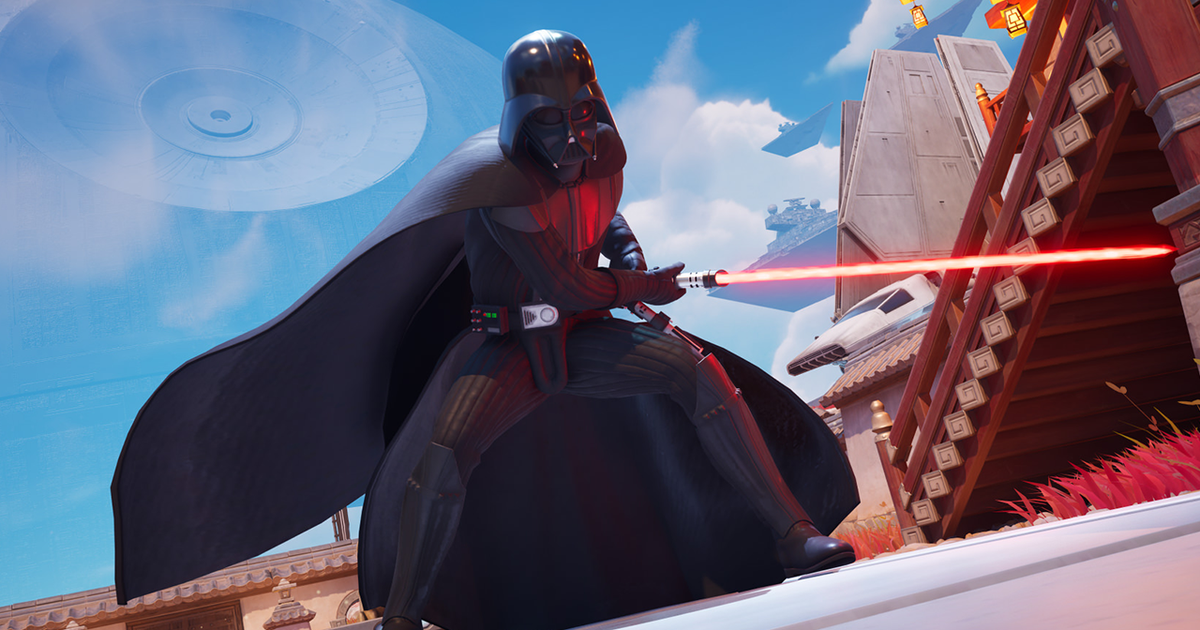The Force Awakens a Labor Dispute: SAG-AFTRA vs. Fortnite’s AI Darth Vader
In a galaxy not so far, far away, but rather within the digital realms of Fortnite, a battle is brewing that pits the Screen Actors Guild-American Federation of Television and Radio Artists (SAG-AFTRA) against Epic Games, the creator of the wildly popular online game. The heart of the conflict? The use of an AI-powered Darth Vader in Fortnite, a move that has ignited a debate over the use of artificial intelligence in replacing voice actors and the rights of performers in the digital age.
A Sith Lord Emerges in Fortnite
Fortnite, known for its crossovers and incorporation of characters from various franchises, recently introduced Darth Vader as an in-game boss. However, this was not just a simple character integration. Epic Games utilized “conversational AI” to recreate the iconic voice of the late James Earl Jones, allowing players to interact with the Sith Lord, ask questions, and receive AI-generated responses in the character’s voice.
To achieve this, Epic Games reportedly employed Google’s Gemini 2.0 model for generating Vader’s responses and ElevenLabs’ Flash v2.5 model for the audio. While this technological feat has amused many players, it has also sparked controversy, particularly regarding the ethics of using AI to recreate a deceased actor’s voice and the potential implications for the livelihoods of voice actors.
SAG-AFTRA Strikes Back
SAG-AFTRA, the union representing over 160,000 actors and media professionals, has taken a firm stance against Epic Games’ use of AI in Fortnite. The union filed an unfair labor practice charge against Llama Productions, a subsidiary of Epic Games, alleging that the company replaced the work of human performers with AI technology without proper notice or negotiation.
SAG-AFTRA argues that Epic Games’ actions violate their agreement by replacing human performers without notice. The union emphasizes the need to protect the rights of its members to bargain over the terms and conditions of using voices that replace their work, including those who previously matched Darth Vader’s iconic rhythm and tone in video games.
The union’s concerns are rooted in the broader context of the ongoing strike against major game companies, which began in 2024. A key issue in the strike is the demand for greater protection against AI copies and the unregulated use of AI.
The Ethical and Legal Battleground
The controversy surrounding Fortnite’s AI Darth Vader raises several ethical and legal questions:
- The Right to One’s Voice: Does an actor’s estate have the right to permit the use of their voice for AI recreation, even if the actor is deceased? While James Earl Jones’ estate reportedly granted permission for using his voice in Fortnite, SAG-AFTRA argues that this does not supersede the union’s right to negotiate terms and conditions for the use of AI that replaces the work of its members.
- The Replacement of Human Performers: Does the use of AI to generate voices constitute a replacement of human performers, and if so, what are the implications for the livelihoods of voice actors? SAG-AFTRA contends that Epic Games’ use of AI in Fortnite directly replaces the work of voice actors who could have performed the role, thus undermining their job opportunities.
- The Need for Regulation: Should there be regulations governing the use of AI in the entertainment industry to protect the rights and interests of performers? SAG-AFTRA advocates for establishing clear guidelines and regulations to ensure that AI is used ethically and does not infringe on the rights of actors and other media professionals.
The Broader Implications
The dispute between SAG-AFTRA and Epic Games over Fortnite’s AI Darth Vader has broader implications for the entertainment industry and the future of work in the age of AI:
- The Rise of AI-Generated Content: As AI technology continues to advance, it is becoming increasingly capable of generating realistic and compelling content, including voices, images, and videos. This raises concerns about the potential for AI to replace human creators in various fields.
- The Protection of Intellectual Property: The use of AI to recreate voices and other creative works raises complex questions about intellectual property rights. Who owns the rights to an AI-generated voice that is based on a real person’s voice? How can these rights be protected?
- The Future of Work: The increasing use of AI in the workplace has the potential to disrupt various industries and displace human workers. It is essential to consider the social and economic implications of AI and to develop strategies for mitigating its negative effects, such as providing retraining and support for workers who may be displaced.
A Fork in the Road
The clash between SAG-AFTRA and Epic Games over Fortnite’s AI Darth Vader represents a critical moment for the entertainment industry. The outcome of this dispute could set a precedent for how AI is used in the industry and how the rights of performers are protected in the digital age.
As AI continues to evolve, it is crucial for industry stakeholders, including unions, companies, and policymakers, to engage in open and constructive dialogue to address the ethical, legal, and economic challenges posed by this technology. By working together, they can ensure that AI is used in a way that benefits both creators and consumers while preserving the value of human creativity and artistry.
Conclusion: A Call for Balance in the Force
The controversy surrounding Fortnite’s AI Darth Vader serves as a stark reminder of the transformative potential of artificial intelligence and the need for thoughtful consideration of its implications. As we embrace the possibilities of AI, we must also be mindful of its potential impact on human workers and the importance of protecting their rights and interests. Finding a balance between technological innovation and human well-being is essential to ensure that the force remains with us all.

